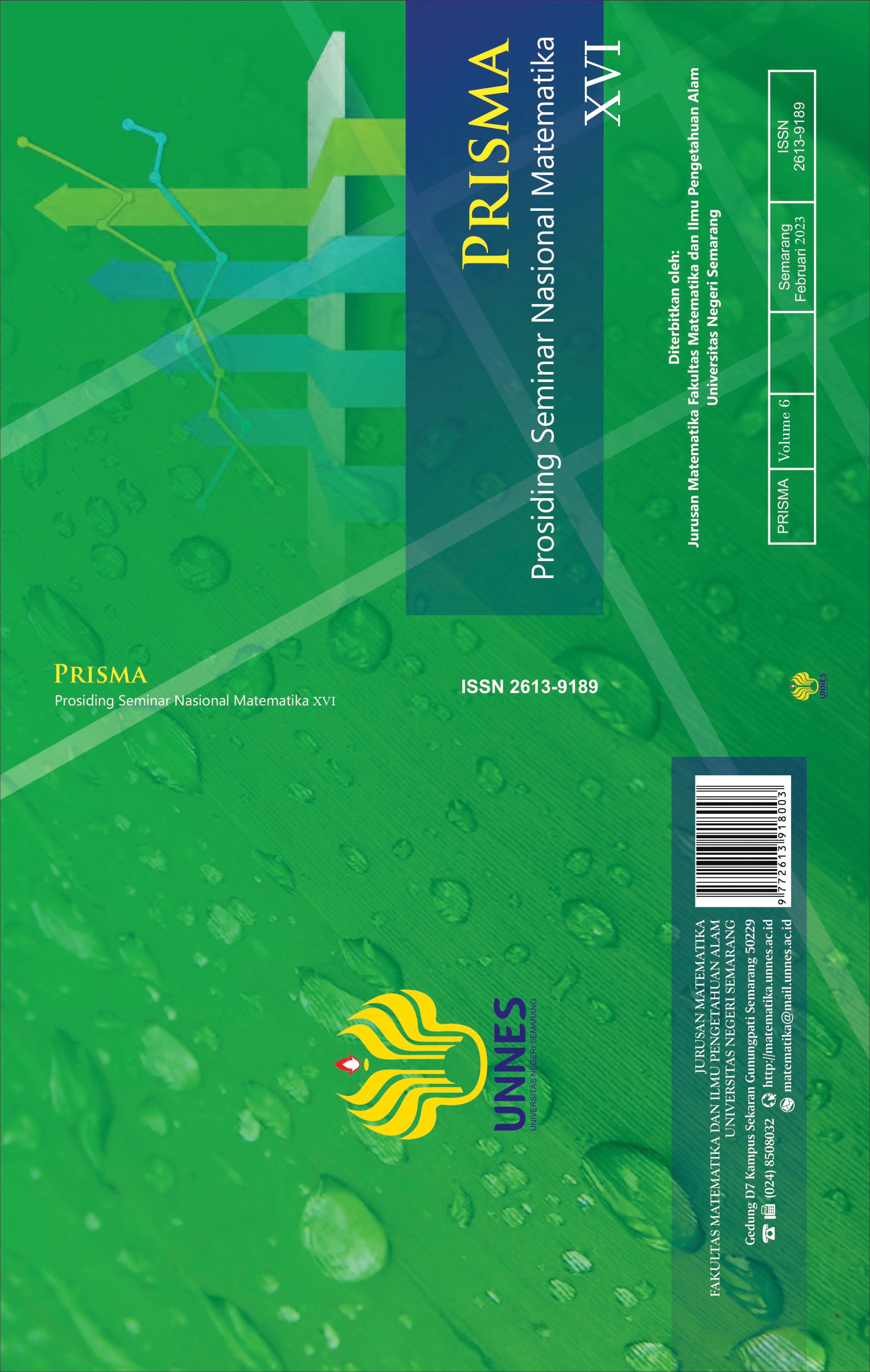Study Literature of ICT toward Mathematics Anxiety for Students
Main Article Content
Abstract
Mathematical anxiety is the emergence of feelings of panic, helplessness, inability to act, and unable to control the mentality that occurs when someone is asked to solve mathematical problems. Mathematical anxiety has an influence on student learning outcomes. Researchers conducted an analysis of the studies that have been done related to the use of ICT-based learning media and students' mathematical anxiety. The purpose of this study was to examine in depth the use of ICT-based mathematics learning media to reduce students' math anxiety in learning mathematics. The method used in this research is literature study. The results of this study are students who use ICT as a medium in learning mathematics have lower levels of anxiety than students who do not use ICT as a medium in learning. Therefore, it can be concluded that the use of ICT-based learning media can help reduce math anxiety experienced by students when learning mathematics so as to increase interest, motivation, and student learning outcomes. The suggestion from this research is that further studies can be carried out regarding the maximum use of ICT-based learning media to overcome students' mathematical anxiety.
Article Details
References
Das, K. (2019). Role of ICT for Better Mathematics Teaching. Shanlax International Journal of Education, 7(4), 19-28.
Dwirahayu, G., Sajari, D., & Rosyidatun, E. S. (2017). Pengembangan Budaya Akademik Dosen: Hasil Kajian Teoritis dan Hasil Penelitian. Fakultas Ilmu Tarbiyah dan Keguruan UIN Syarif Hidayatullah Jakarta.
Fadilah, N. N., & Munandar, D. R. (2019). Analisis Tingkat Kecemasan Matematis Siswa SMP. Prosiding Seminar Nasional Matematika dan Pendidikan Matematika, 2(1b), 459-467.
Hidayat, A., & Asmalah, L. (2022). Augmented Reality pada Smartphone untuk Meningkatkan Motivasi Belajar dan Mengurangi Kecemasan Matematika. Jurnal Emasains: Jurnal Edukasi Matematika dan Sains, 9(2), 187-195. DOI : 10.5281/zenodo.4301064
Ikhsan, M. (2019). PENGARUH KECEMASAN MATEMATIS TERHADAP HASIL BELAJAR MATEMATIKA SISWA. de Fermat: Jurnal Pendidikan Matematika, 2(1), 1-6.
Irmawati, D. A., & Sholihah, U. (2021). Media Pembelajaran Matematika Berbasis Aplikasi Android pada Siswa SMK. Jurnal Inovasi dan Riset Akademik, 2(7), 960-969.
Minarti, I. B., Hayat, M. S., & Sumarno. (2014). PENGGUNAAN MEDIA ICT DENGAN MODEL LEARNING CYCLE UNTUK MENINGKATKAN KETERAMPILAN BERPIKIR KRITIS DAN PENGUASAAN KONSEP SISWA. PROSIDING SEMNAS ENTREPRENEURSHIP, 356-366.
Munggaran, D. S., Rachmawati, T. K., & Sholihah, W. (2022). Mathematics Anxiety Pada Pembelajaran Matematika Daring Mathematics Anxiety in Online Mathematics Learning. Gunung Djati Conference Series : Mathematics Education on Research Publication (MERP I ), 12, 23-29.
Nabilah, E., & Umam, K. (2021). Hubungan Kecemasan Matematika dan Digital Storytelling Terhadap Math Literacy Pada Siswa Sekolah Menengah Pertama dalam Pembelajaran Matematika Pada Kelas Virtual. Jurnal Cendekia: Jurnal Pendidikan Matematika, 5(3), 2152-2163.
NCTM. (2000). Principles and Standards for School Mathematics. The National Council of Teacher of Mathematics. https://www.nctm.org/standards/
OECD. (2018). The Programme for International Student Assessment (PISA). PISA 2018 Results, Combine Executive Summary.
Ramadhani, R. (2020). Desain Pembelajaran Matematika Berbasis TIK: Konsep dan Penerapan. Yayasan Kita Menulis.
Riski, F., Marethi, I., & Rafianti, I. (2019). PENGARUH KECEMASAN MATEMATIKA TERHADAP KEMAMPUAN PEMECAHAN MASALAH SISWA DI SMA. GAUSS: Jurnal Pendidikan Matematika, 2(2), 11-23.
Rista, L. (2019). Penerapan media pembelajaran berbasis ICT (information communication of technology) terhadap pemahaman konsep matematika siswa kelas IX SMP Negeri 1 Lhokseumawe. Jurnal MathEducation Nusantara, 1(1), 161-164.
Rusman. (2012). Pembelajaran Berbasis TIK. PT.Raja Grafindo Persada.
Santoso, E. (2017). Mengurangi Kecemasan Matematika dengan Bermain Game Logika (Studi Kasus pada Siswa Sekolah Menengah Kejuruan Galuh Rahayu Kabupaten Ciamis Tahun Pelajaran 2015/2016). Jurnal THEOREMS (The Original Research of Mathematics), 1(2), 31-41.
Santoso, E. (2021). Kecemasan Matematis: What and How? Indonesian Journal of Education and Humanity, 1(1).
Saputra, P. R. (2014). KECEMASAN MATEMATIKA DAN CARA MENGURANGINYA (MATHEMATIC ANXIETY AND HOW TO REDUCE IT). PYTHAGORAS, 3(2), 75-84.
Sholihatunnisa, L., Jihad, A., Juariah, & Sugilar, H. (2020). Pemahaman Matematis dan Math Anxiety Siswa dengan Model ICARE dan Media Powtoon. SENTER : Seminar Nasional Teknik Elektro, 209-216.
Tobias, S. (1990). Math Anxiety: An Update. NACADA Journal, 10(1), 47-50.
Wangge, M. (2020). IMPLEMENTASI MEDIA PEMBELAJARAN BERBASIS ICT DALAM PROSES PEMBELAJARAN MATEMATIKA DI SEKOLAH MENENGAH. Fraktal: Jurnal Matematika dan Pendidikan Matematika, 1(1), 31-38.
Widodo, S. A. (2018). Selection of Learning Media Mathematics for Junior School Students. Turkish Online Journal of Educational Technology, 17(1), 154-160.
